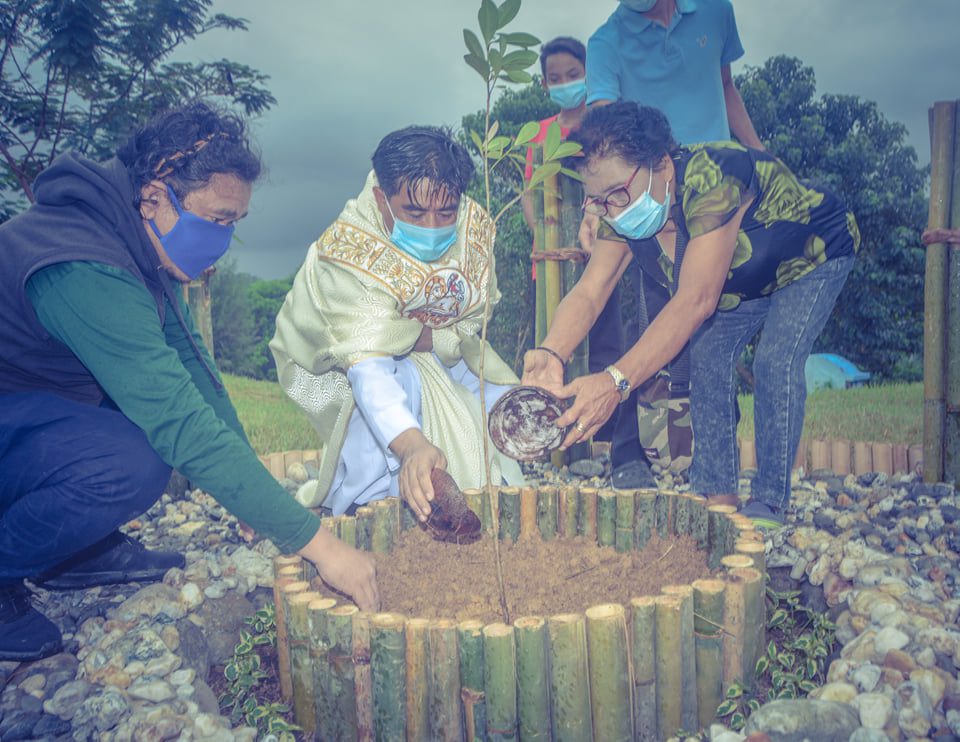
A friend, a choir director in a parish, expressed his sentiments over the situation during the pandemic — the restrictions, the online Masses, and the parish meetings.
He loves his parish and does his best to continue working, serving the Church despite all the constraints. My friend is not alone. There are many of them.
Parish ministry among Filipinos is a way of life. Many are willing to serve in various ministries and offer their time, talent, and yes, even treasure, for the Church, for the parish.
I am just wondering, “Are there people out there who would be willing to take on the challenge of an ecology ministry in parishes?”
The Second Plenary Council of the Philippines noted that we, the faithful, are “stewards of creation,” and as stewards, we are “accountable to the Creator and giver of all good things.”
The Catholic Church has various ministries — worship, education, social, music, youth ministries, among others. There are ministries that eventually evolved to cater to a broader pastoral need, like the family and social communications ministries, to name a few.
Moved by our commitment to preserve the integrity of creation, certain movements in the Church have started to press for an Ecology ministry.
The ministry of ecology, however, should not be viewed as a nascent service in the Church. In fact, Saints Francis of Assisi and Martin de Porres have been associated with charity for nature.
“God took the man and put him in the Garden of Eden to work it and take care of it,” says Genesis.
One thing is clear, the ministry of ecological stewardship came even before Jesus.
The Second Plenary Council of the Philippines noted that the local Church included ecology among its special social concerns, citing the need for “a comprehensive theology of stewardship.”
The council said ecology should be a “special concern of the social action apostolate down to the parochial level.”
In January, during the 30th anniversary of PCP II, the Philippine Catholic Church announced the establishment of ecology desks down to the parochial level.
While PCP II explicitly defines the setting up of an ecology desk among social action centers, there have been proposals to make it a “ministry.”
Some dioceses maintain that coordinating environmental concerns can be handled by an “ecology desk.”
The National Convention on Laudato Si and Climate Change in 2019 urged bishops and religious superiors “to prioritize the allocation of budget and financial support for the ecology desk.”
So what is it? A “desk” or a “ministry?”
A “desk” is an institutional and administrative term, while a “ministry” refers more to pastoral work.
An ecology desk is an institutionalized sub-entity tasked to coordinate ecological works within a larger social development ministry. It is similar to a particular office or a line agency in a government agency. Because of its institutional character, its presence is likely to exist with administrative support from its mother institution.
An ecology ministry, however, is a form of pastoral service designed toward integral ecology. It is analogous to a movement convened for a special purpose. A ministry is more independent from other ministries, and it can develop projects and other programs on its own.
In a nutshell, an ecology ministry is a functioning organ, while an ecology desk is a secretariat.
What is needed? An ecology desk or a ministry?
Both. In practice, an ecology desk can serve as foundation for sustainability and stability, while an ecology ministry is the function of the desk.
Which is more appropriate?
It depends on the capacity of the institution. An ecology desk is appropriate when there are no enough resources to sustain a ministry on its own because it has to rely on the support of the “mother ministry.” This may be the case in the dioceses.
An ecology ministry may be set up with or without the ecology desk, but sustainability will be dependent on the coordinators and volunteers.
In the case of the parish, especially among communities that are incapable of providing administrative support, it would be ideal that an ecology ministry be formed.
Whether it may be designed as a desk or a ministry, one thing is clear. Ecological commitments must be demanded from the faithful. If we need to be more responsive, a parish ministry of ecology should be established.
Adrian Banguis-Tambuyat is a young communication practitioner specializing in online content strategy and broadcast journalism. His interests are focused on social justice, youth formation, communication theology, and mass media evangelization.






0 Comments